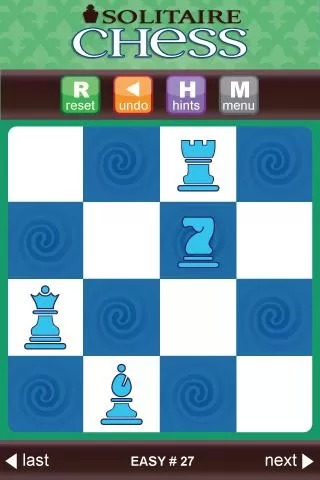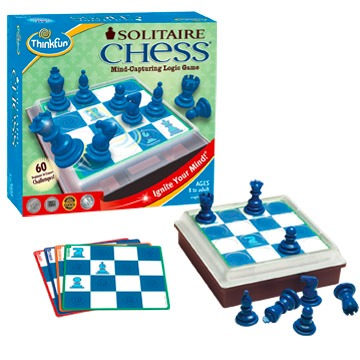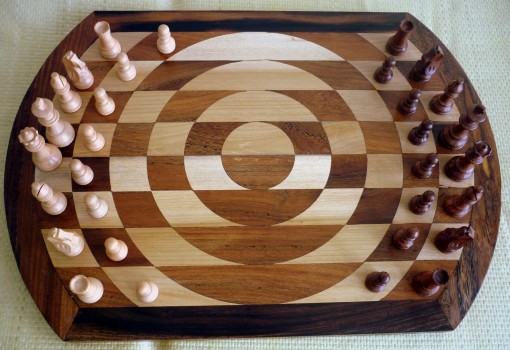Solitaire Chess is a chess-based logic game published by Think Fun.
The game takes place on a 4 x 4 chessboard with various pieces placed on different squares, like this screenshot from the Android version of the game:

As in chess, you move one piece at a time, and all the pieces have to be moved according to standard chess rules.
You can start by moving any piece, but every move must result in the capture of a piece, and you “win” or solve the puzzle by capturing every piece until there’s just one left. Y
You can (and usually must) move multiple pieces, so in the above example the solution is to capture the Queen with the Knight, then capture the Knight with the Bishop, and then finish by capturing the Rook with the Bishop.
These start out easy and get very challenging. Solitaire Chess started out as a board game, which ThinkFun sells on its website for $19.99.
The board game version comes with 30 challenge cards that are double-sided, so there are 60 puzzles to solve.
The Android version goes for $1.99 on the Play store and includes 400 puzzles, divided equally into 100 easy, medium, hard and expert puzzles.
This was easily the best $1.99 I’ve spent on an Android game.




